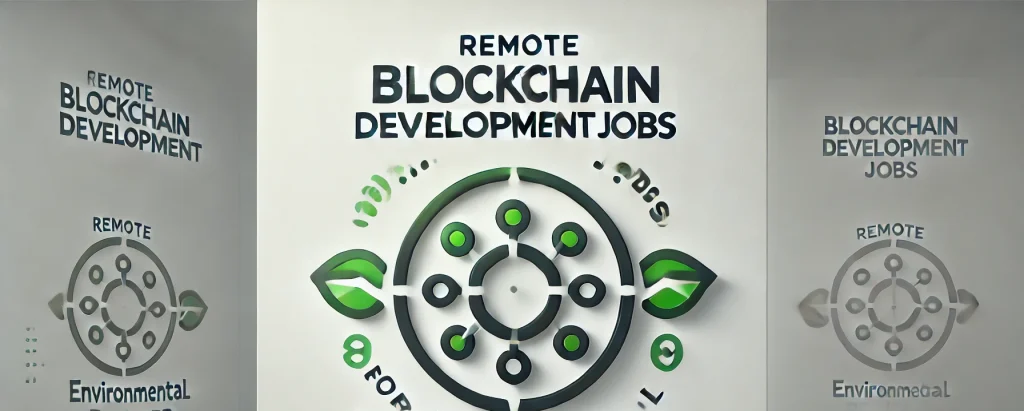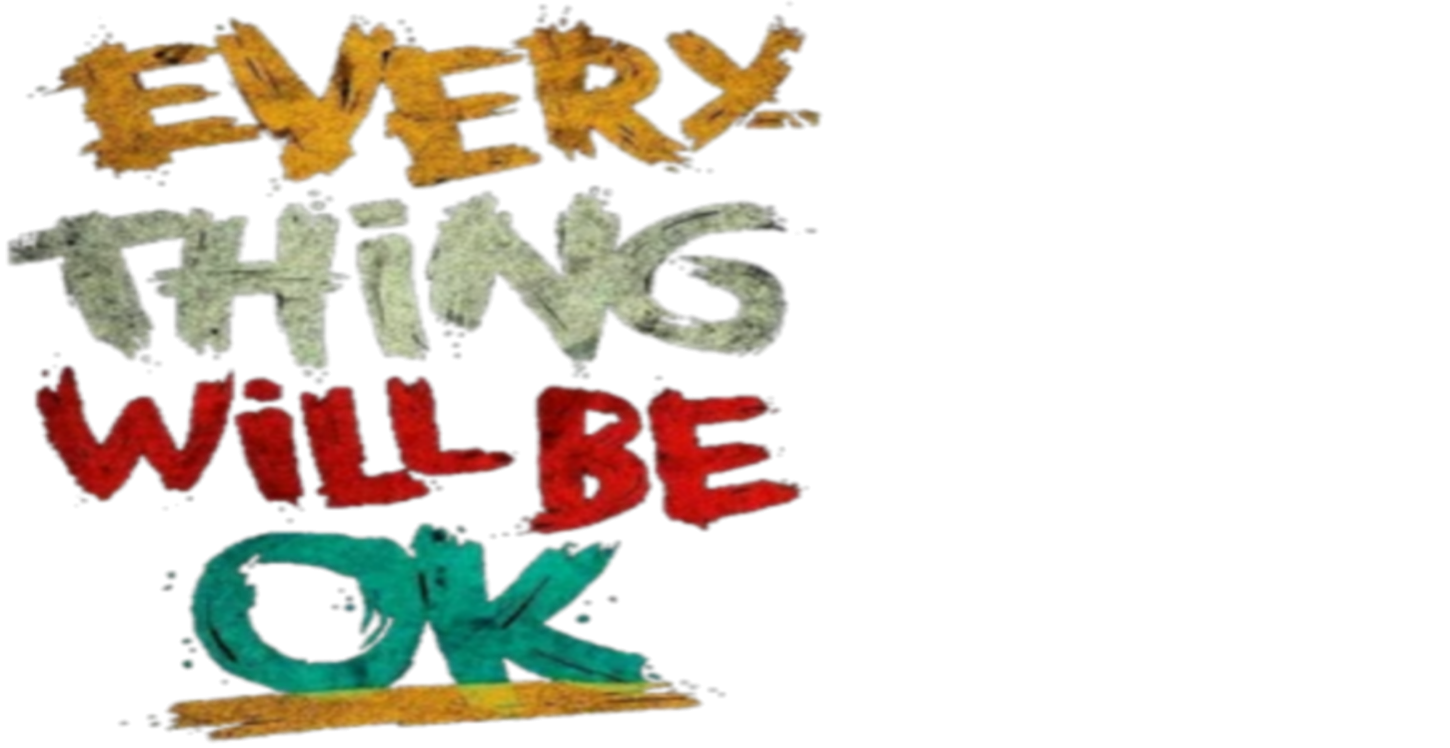In recent years, more people have become concerned about climate change and the health of our planet. We all want cleaner air, less pollution, and better ways to use our natural resources. Technology can play a big role in helping the environment, and one type of technology that’s making waves is blockchain. Remote Blockchain Development Jobs for Environmental Projects. Blockchain is not just for Bitcoin or other cryptocurrencies – it has many uses, and one of them is helping protect the environment.
In this article, we’ll explore remote blockchain development jobs specifically for environmental projects. We’ll also go over what types of jobs are out there, their costs, and how blockchain technology is used for good causes.
What is Blockchain and How Does it Help the Environment?
Blockchain is a type of digital record-keeping. Each piece of information, or “block,” is linked, or “chained,” to others, creating a secure and unchangeable record. This makes blockchain an excellent tool for tracking data, ensuring transparency, and reducing fraud.
But what does this have to do with the environment? Many companies are using blockchain to track carbon footprints, support renewable energy sources, and ensure sustainable supply chains. For example, by using blockchain, a company could trace every step of a product’s journey from raw materials to the customer, ensuring that everything was done in an eco-friendly way.
This rise in eco-friendly technology creates a need for skilled blockchain developers who can work remotely and help environmental organizations and companies.
Why Remote Blockchain Development Jobs are Important
Many blockchain jobs can be done remotely, which means you can work from anywhere. This is beneficial for both workers and companies for a few reasons:
- Lower costs: Companies don’t have to provide office space or pay for on-site facilities.
- Reduced carbon footprint: Remote work means fewer people commuting, which leads to less pollution and energy use.
- Global talent pool: Companies can hire skilled people from around the world, increasing the chances of finding the right experts.
This flexibility and global reach make remote blockchain jobs a great choice for both tech professionals and companies looking to go green.
Types of Remote Blockchain Development Jobs for Environmental Projects
Let’s explore the various types of jobs available, their costs, and what they offer.
1. Blockchain Developer
- Responsibilities: Design and develop blockchain applications, maintain blockchain infrastructure, and test blockchain solutions.
- Skills Required: Strong knowledge of blockchain protocols (like Ethereum), smart contracts, and programming languages (like Solidity or Python).
- Offer Cost: Companies can expect to pay around $50 to $150 per hour for skilled blockchain developers. For junior positions, rates may be lower, around $25 to $50 per hour.
2. Smart Contract Developer
- Responsibilities: Build and test smart contracts, which are self-executing contracts on the blockchain.
- Skills Required: Experience with Solidity (used in Ethereum), understanding of smart contract security, and testing procedures.
- Offer Cost: Hourly rates for smart contract developers range from $40 to $120, depending on experience. Some companies may offer project-based pricing, starting from $500 to over $5,000, depending on the complexity.
3. Blockchain Analyst
- Responsibilities: Analyze blockchain data to find patterns, improve processes, and recommend environmentally friendly solutions.
- Skills Required: Data analysis, proficiency in blockchain data tracking tools, and knowledge of environmental issues.
- Offer Cost: Blockchain analysts often make between $35 and $100 per hour. Analysts with advanced environmental expertise can make even more.
4. Blockchain Project Manager
- Responsibilities: Coordinate blockchain projects, ensuring that they meet environmental goals and timelines.
- Skills Required: Strong understanding of blockchain, project management, and environmental sustainability.
- Offer Cost: Project managers are typically hired on a salary basis, with remote project managers making between $60,000 and $120,000 per year. Hourly rates can vary between $40 and $80.
5. Blockchain Consultant for Environmental Projects
- Responsibilities: Offer expert advice on using blockchain technology in eco-friendly ways.
- Skills Required: Deep knowledge of blockchain, plus experience in environmental sustainability or clean tech.
- Offer Cost: Consultants usually work on a contract basis, with fees ranging from $100 to $200 per hour. Some consultants might charge a flat project fee starting at $1,000.
DISCOVER MORE: N0 1 Real Estate Agent Jobs | A Comprehensive Guide
How Blockchain Supports Environmental Projects
Blockchain technology can be used in various eco-friendly ways, including:
- Tracking carbon footprints: Some companies use blockchain to record their emissions and find ways to reduce them.
- Supporting renewable energy: Blockchain can track the creation and distribution of renewable energy, like wind or solar power.
- Preventing illegal logging and overfishing: By tracking resources, blockchain helps ensure products come from legal, sustainable sources.
- Encouraging recycling: Blockchain can track recyclable materials, making it easier to recycle and reducing waste.
Benefits of Working in Remote Blockchain Development for the Environment

Working remotely in blockchain development for environmental causes has several perks, such as:
- Contributing to a good cause: Knowing your work helps the planet can be very satisfying.
- High pay and job flexibility: Many of these jobs pay well, and remote work allows for flexibility.
- Growth in green technology: As eco-tech grows, job opportunities in this field are likely to increase.
Getting Started in Remote Blockchain Jobs for Environmental Projects
If you’re interested in these types of jobs, here are a few steps to get started:
- Build your skills: Start with online courses in blockchain and programming. Websites like Coursera and edX have affordable courses.
- Gain experience: Look for freelance projects on websites like Upwork or Freelancer.
- Create a portfolio: Showcase your skills and any work you’ve done for environmental or blockchain projects.
- Apply for jobs: Check job boards like Green Jobs Online or Cryptocurrency Jobs for roles that combine blockchain with environmental work.
Challenges in Remote Blockchain Development for Green Projects
Though this field has many benefits, there are also challenges:
- Keeping up with technology: Blockchain is constantly evolving, so you’ll need to stay updated on new developments.
- Understanding environmental issues: To work on green projects, you’ll need some knowledge of sustainability and eco-friendly practices.
- Navigating job competition: Since these roles can be highly competitive, having strong skills and relevant experience is crucial.
As we move forward, the demand for remote blockchain jobs in environmental projects is only expected to grow. More companies and organizations are looking for ways to reduce their carbon footprint, monitor sustainable practices, and make their processes transparent. This demand creates even more exciting opportunities for tech professionals passionate about both blockchain and sustainability.
Future Trends in Remote Blockchain Development for the Environment
As blockchain continues to evolve, here are some trends we might see in the future:
1. Increased Use of Carbon Credits
- What It Is: Carbon credits allow companies to “offset” their emissions by investing in green projects that reduce carbon elsewhere. Blockchain technology can securely track these credits to ensure they’re used transparently and efficiently.
- Why It Matters: Blockchain makes it easier to prevent fraud, double-counting, and errors in tracking carbon credits. This gives companies, governments, and organizations more confidence that they’re truly helping the environment.
2. Growth of Sustainable Supply Chains
- What It Is: Blockchain can be used to track products from their origin to the customer, helping companies make sure their materials are sourced sustainably.
- Why It Matters: Sustainable supply chains help cut down on harmful practices like illegal mining, deforestation, and pollution. By using blockchain, companies can verify that their goods are responsibly sourced, creating greater transparency and trust.
3. Blockchain in Renewable Energy Trading
- What It Is: Blockchain can support peer-to-peer energy trading, allowing individuals and businesses to sell excess energy (from solar panels, for example) directly to others.
- Why It Matters: This could make renewable energy more accessible and affordable, as people can trade energy without needing large energy companies. It also encourages the use of green energy sources, reducing dependency on fossil fuels.
4. Blockchain for Water and Waste Management
- What It Is: Blockchain can track water usage, waste management, and recycling efforts to optimize resources and reduce waste.
- Why It Matters: As resources become scarcer, efficient management of water and waste becomes crucial. Blockchain technology can help communities monitor their water usage, detect leaks, and find ways to recycle more effectively.
How to Advance Your Career in Remote Blockchain Development

If you’re already working in blockchain development or a similar field, here are some steps to grow your career, particularly in the environmental sector:
- Stay Updated on Green Blockchain Initiatives: Follow companies and organizations that are pioneering blockchain for environmental uses. Reading blogs, research papers, and news articles can keep you informed about new developments and open positions.
- Network in Eco-Tech Circles: Join online communities, attend webinars, and participate in forums that focus on green technology and blockchain. Websites like LinkedIn and GitHub often have communities where blockchain developers and environmentalists connect.
- Develop a Niche Skillset: Becoming an expert in a niche area, such as carbon credit tracking or renewable energy blockchain solutions, can make you stand out. Specialized skills in smart contract development, data analysis, or environmental policy combined with blockchain expertise are especially valuable.
- Contribute to Open Source Projects: Working on open-source projects in blockchain for the environment can boost your resume and show potential employers that you’re serious about eco-tech. Websites like Gitcoin and Bounties Network offer opportunities to contribute to blockchain projects.
Building a Sustainable Future with Blockchain
As blockchain technology continues to integrate with environmental projects, the opportunities for remote blockchain developers in this space are bound to expand. Companies across sectors will continue to embrace blockchain to bring about transparency, efficiency, and accountability in their green initiatives.
If you’re a developer who is passionate about the environment, a career in remote blockchain development for environmental projects could be both fulfilling and financially rewarding. By combining technical skills with a commitment to sustainability, you can play an essential role in building a more eco-friendly future for us all.
Whether you’re working to track carbon footprints, developing sustainable supply chains, or building renewable energy platforms, your contributions can help make the world a better, greener place.
Conclusion
The world needs more eco-friendly solutions, and blockchain technology can be a powerful tool to help achieve this goal. For people interested in technology and environmental sustainability, remote blockchain development jobs for green projects offer an exciting and meaningful career path.
Whether you’re a seasoned blockchain developer or just starting, this field is full of potential. And with good pay, flexible work hours, and the chance to make a difference, it’s no wonder more people are exploring remote blockchain jobs for environmental projects!

